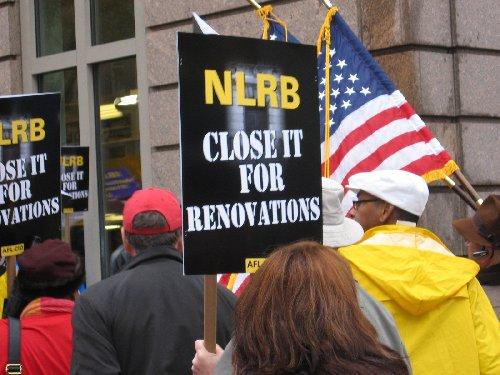 What do you think of when you hear “National Labor Relations Board”?
What do you think of when you hear “National Labor Relations Board”?
Maybe you think of a small agency in Washington that referees union/management squabbles. And until the past few years, you’d mostly be right. But under the Obama administration, the board has begun involving itself in your workplace—unionized or not—more than ever.
This mainly revolves around Section 7 of the National Labor Relations Act, which gives employees in ALL workplaces the right to take part in “concerted activities for the purpose of collective bargaining or other mutual aid or protection.”
Under the Obama administration, NLRB rulings have been interpreting Section 7 very broadly. The result: It has begun outlawing all kinds of employer policies that could remotely restrict employees’ ability to improve their pay, working conditions or their right to organize.
For example, just last month, the NLRB ruled that a company policy prohibiting employees from having a “discourteous or inappropriate behavior or attitude” toward their co-workers was unlawful. Why? The agency said the language could somehow deter employees from discussing their pay and benefits with their co-workers. (First Transit, Inc., 360 NLRB, No. 72) Hmmmm.
The end of “No personal use of email” policies? Now comes word the agency has a new target in your workplace—your ability to ban employees from writing non-work emails at work.
In a key 2007 ruling, the Bush-era NLRB said a publishing company’s “no non-work use of email” policy was perfectly legal. In that case, the board said, “Employees have no statutory right to use their employer’s email system for Section 7 purposes.” (Register Guard, 351 NLRB 1110)
But Obama’s version of the NLRB may see things differently. It has agreed to take up a case in which a labor organization filed charges against Purple Communications. The Purple workers said the company’s policy banning personal use of email unlawfully restricts their legal right to discuss their pay, benefits and other working conditions.
An administrative law judge dismissed the workers’ case, citing the NLRB’s earlier decision in Register Guard.
But the full NLRB now says it wants to revisit that 2007 ruling. It posted a notice on April 30 inviting interested parties to comment on the need for a rule change. After reviewing these comments, look for a final NLRB ruling later this year.
Bottom line: If your organization has a similar rule about no personal use of email, an employee-friendly decision in this case could send you back to the drawing board. Look for a decision later this year on this case. And don’t expect the NLRB to let up in its all-out assault on your handbook.
